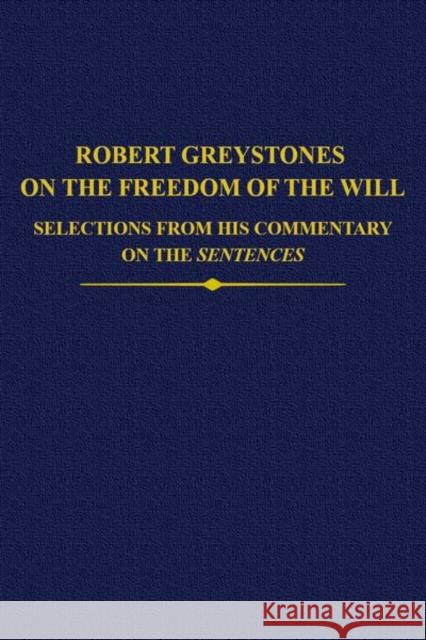Robert Greystones on the Freedom of the Will: Selections from His Commentary on the Sentences » książka
Robert Greystones on the Freedom of the Will: Selections from His Commentary on the Sentences
ISBN-13: 9780197266014 / Angielski / Twarda / 2017 / 400 str.
If there is a heaven and you get there, could you still sin? If not, why not, if you're still free? If there is a hell and you end up there, why couldn't you choose to repent and get out? If not, why not, if you're still free? However esoteric these questions may seem, they forced thinkers in the fourteenth century to think hard about just what it is to be free. In what, exactly, does human freedom consist? By addressing a number of theological 'limit situations', such as those mentioned above, Robert Greystones, while at Oxford University in the 1320s, developed his own philosophical theory of human freedom, which is remarkably coherent and persuasive. This volume presents for the first time the Latin critical edition of his discussions, with a clear English translation on facing pages, along with an extensive introduction, describing his life and teaching on human freedom.
This volume presents the Latin critical edition, with English translation on facing pages, of six questions from Robert Greystones's Sentences commentary. Greystones's discussions provide an excellent window onto debates concerning the will at Oxford in the early 1320s, since he works out his solutions in critical dialogue with contemporaries such as William of Ockham, William of Alnwick, Robert Cowton, Richard Conington, Henry of Harclay, and Peter Aureol. In order to show the cut and thrust of these debates, the editors include many ample quotations from these thinkers, including material found only in manuscript. A clear and extensive introduction describes Greystones's life and doctrine of the will. The editors also provide a complete list of Greystones's numerous questions in the four books of his commentary, found only in Westminster Abbey MS 13.











